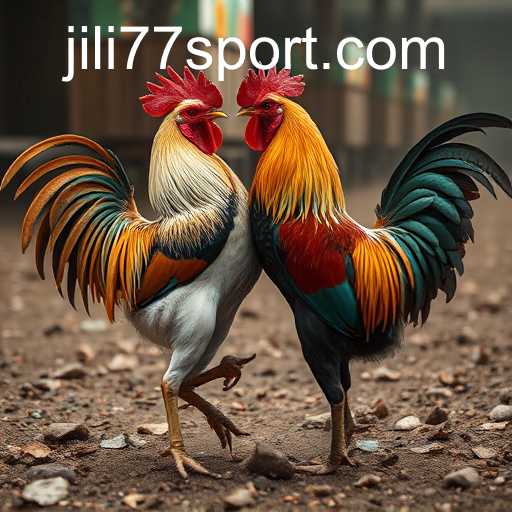An in-depth exploration of cockfighting, considering its historical roots, cultural significance, modern controversies, and the emergence of platforms like Jili 77.
The Intricate World of Cockfighting: A Closer Look at the Tradition
Cockfighting is a centuries-old practice with deep cultural roots in many societies. Though controversial and often outlawed, it continues to persist in various corners of the world, drawing attention for both its passionate following and the significant ethical questions it raises. This article delves into the multifaceted world of cockfighting, exploring its history, cultural significance, and the modern controversies that surround it. Moreover, we discuss the emerging platform, Jili 77, which has become a topic of interest among cockfighting enthusiasts.jilislotph
Historical Roots of Cockfighting
The origins of cockfighting can be traced back to ancient times, believed to have started over 6,000 years ago. Historical records suggest that the practice was prevalent among ancient civilizations, including the Greeks, Persians, and Romans. Across these cultures, cockfighting was not just a mere pastime but a celebrated ritual that symbolized bravery, strength, and strategy. It was often linked to the aristocracy, with many high-ranking individuals partaking in and betting on the outcomes of these intense contests. This sense of tradition and prestige associated with cockfighting has endured, handing down from generations to generations.
Cultural Significance and Legacy
In regions where cockfighting is ingrained in cultural identity, such as Southeast Asia and Latin America, the activity is more than just a sport. It is a ritual and an art form with ceremonies that honor the fighting cocks. Roosters are bred specifically for fighting and are seen as symbols of virility and courage. The care and conditioning of these birds are deeply rooted in tradition, with breeders paying meticulous attention to their diet, exercise, and training to enhance their fighting capabilities. In communities where this practice is still prevalent, cockfighting is often intertwined with religious and cultural festivals, celebrating the rooster's roles in myth and lore.
Modern Controversies and Ethical Concerns
Today, cockfighting is banned or restricted in many countries because of the ethical concerns surrounding the treatment of animals. Opponents of the practice argue that it is a form of animal cruelty, subjecting roosters to brutal conditions with limited regard for their wellbeing. Animal rights activists worldwide have campaigned fervently for bans and stricter enforcement of laws against cockfighting. In contrast, supporters argue for its deep-seated cultural significance and economic benefits, particularly in rural areas.
Furthermore, concerns have been raised about illegal gambling associated with cockfighting, as these matches often attract high-stakes betting. Despite these controversies and the legislative actions taken against it, cockfighting persists, thriving underground in regions where it is officially prohibited.Jili register
Jili 77: A New Era for Cockfighting Enthusiasts
In recent years, digital platforms such as Jili 77 have emerged, offering a virtual space for cockfighting enthusiasts. Jili 77 has become popular for its community-driven focus, providing a forum for enthusiasts to share knowledge about rooster breeding, training techniques, and match strategies. Furthermore, it attempts to bridge the gap between tradition and modernity by incorporating advanced technology and analytics to deepen the understanding of fighting strategies.
The platform has stirred interest among new and seasoned followers alike, offering an opportunity to engage with cockfighting culture from a global perspective. Jili 77 allows enthusiasts to partake in discussions about the cultural significance of cockfighting, keeping the tradition alive while adhering to stricter regulations in certain areas.Jili 77
Cockfighting's Place in Today's World
The dynamic yet contentious nature of cockfighting makes it a subject of ongoing debate. While the practice faces scrutiny and legal restrictions, its place in traditional culture remains indisputable. Platforms like Jili 77 signify a shift in how this age-old sport is perceived and practiced in the modern era. They represent an effort to retain cultural heritage while adapting to contemporary demands for animal welfare and ethical standards.abcjili
While the future of cockfighting remains uncertain, the historical and cultural underpinnings suggest that it is more than just a sport; it is a complex narrative interwoven with tradition and identity. The ongoing evolution of its practices—be it through virtual platforms or public discourse—demonstrates the resilient nature of cultural traditions in the face of societal change and globalization.
Conclusion
Despite the controversies engulfing its practice, cockfighting continues to command a unique place in cultures across the world. While its traditional aspects are embraced by many, the movement towards modern platforms like Jili 77 underlines a desire to evolve and adapt practices to fit into the present-day ethical framework. The balance between respect for cultural heritage and the need to address ethical considerations will likely shape the future narratives surrounding cockfighting.
By understanding the implications of these dynamics, we gain insights into how historical practices can be preserved while concurrently advocating for animal welfare and cultural sensitivity in an increasingly connected world. As debates over its legality and morality continue, platforms like Jili 77 demonstrate that the dialogue around cockfighting is far from over, evolving with each new digital advancement and societal shift.
jili178



